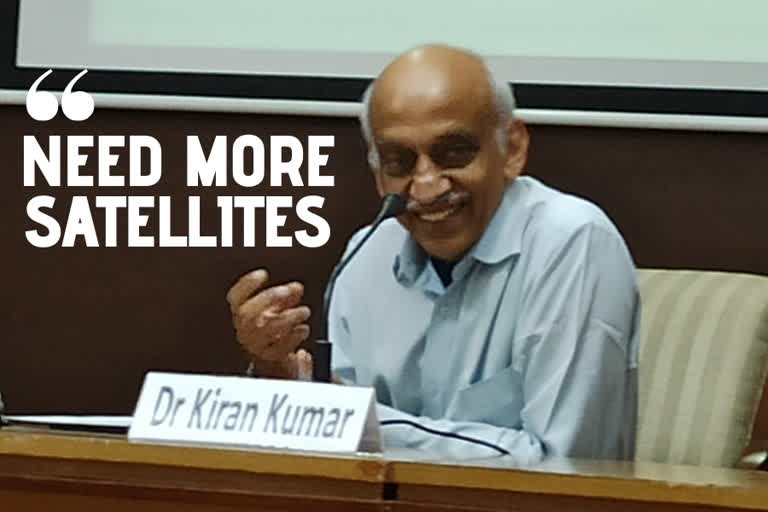New Delhi: To meet its various requirements, India needs many more satellites in space than it has at present, a top space scientist and former Indian Space Research Organisation (ISRO) chairperson Dr Kiran Kumar has said.
Speaking to a select gathering in the national capital at a recent event on the prospects and challenges for Indian space research, Kumar said: "We need large capabilities. For a country of our size, and to meet our observation, communication, navigation needs and all such capabilities, we may need something like more than 100 satellites. What we have today is only about 55."
Kumar, retired as ISRO chairperson in January 2018, is known to be the brain behind the design and development of key scientific instruments aboard the Chandrayaan-1 and Mangalyaan spacecrafts.
Chandrayaan-1 was the successful ISRO mission in 2008 of an Indian spacecraft to the Lunar surface while Mangalyaan or the Mars Orbiter Mission (MOM) is a space probe orbiting Mars since September 2014 besides being India’s first interplanetary effort.
Read: ISRO to train 4 astronauts for 'Gaganyaan', here's all you need to know
Emphasising on the need to build more capacity and incorporation of the private sector as well, Kumar, who continues to be involved in cutting-edge space research and development activities, said: "That is where the capability building exercises come in… ensuring that more and more Indian companies are contributing… The government on its part has given its approval for up to 50 (satellite) launches next year, it is up to us to build this capacity and meet the demand and sustain that in the future."
Kumar said that till now ISRO has launched 327 satellites belonging to 34 countries, a major landmark being the PSLV-C37 mission that launched a record 104 satellites on February 15, 2017. "The video of the (PSLV-C37 mission) launch has been downloaded a record 1.5 lakh times," he quipped.
The top scientist indicated about the launch of a heavy duty satellite "in a matter of months" that will cater to the internet broadband connectivity needs of all the gram panchayats in the country as well as the very remote areas.
Kumar spoke at length about NAVIC (Navigation with Indian Constellation), India’s indigenous version of the GPS that may veritably replace the Google GPS in India. "Our own navigation system NAVIC comprises a constellation of just 7 satellites against 24-32 satellites of other countries (like US, China, etc)."
The seven-satellite constellation already launched between July 2013 and April 2016 is already positioned in space. According to a recent Comptroller and Auditor General (CAG) report, the reasons for the delay include "sites not being ready, revisions in the technical specifications, non-compliance with contract specifications by the contractor, administrative reasons, delays in shipment and delays in completion of civil works."
Read: Microsat-R to Chandrayaan-2, a look at ISRO's satellite launches of 2019



